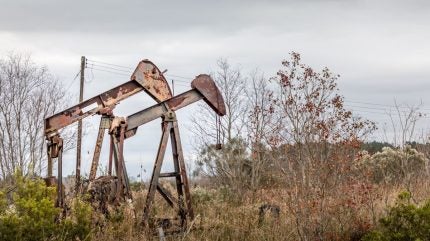
Texas, Louisiana and Mississippi filed a lawsuit on Monday against the US Government to stop the Biden administration’s proposed rule forcing the offshore oil and gas industry to pay almost $7bn in financial assurances to cover the expense of dismantling old infrastructure.
The lawsuit was filed against the US Bureau of Ocean Energy Management (BOEM), which has stated that the regulation could impact around three-quarters of Gulf of Mexico operators.

Discover B2B Marketing That Performs
Combine business intelligence and editorial excellence to reach engaged professionals across 36 leading media platforms.
According to the US Government Accountability Office (GAO), the Bureau of Safety and Environmental Enforcement (BSEE) requested $30m from Congress in fiscal year 2024 to help fund service contracts for decommissioning abandoned infrastructure in the Gulf of Mexico.
According to BSEE officials, the bureau has been trying to award a contract for decommissioning 15 abandoned wells and nine abandoned platforms in the Gulf since 2020 but has faced challenges.
As of July 2023, the BSEE had awarded its initial two five-year decommissioning services contracts and plans to utilise the contracted services to collect information on the condition of these wells and ensure the safety of the associated platforms.
However, the BOEM does not ensure that offshore oil and gas operators are able to meet their financial responsibilities in decommissioning wells and platforms, thereby exposing the federal government to significant financial risk.

US Tariffs are shifting - will you react or anticipate?
Don’t let policy changes catch you off guard. Stay proactive with real-time data and expert analysis.
By GlobalDataThe supplemental bonds held by the BOEM cover only a small portion of the estimated decommissioning costs, leaving at least $36.5bn in liabilities uncovered if operators fail to fulfil their obligations.
Louisiana Attorney General Liz Murrill filed the lawsuit in a federal district court in Louisiana, joined by attorney generals from Texas and Mississippi.
The Federal regulation, which will take effect later this year, will mainly affect smaller companies without investment-grade ratings or adequate proven oil reserves. Oil majors are more likely to meet the credit requirements or have substantial financial reserves.
According to Reuters, Murrill said “This is a really egregious direct assault on intermediate-level producers of oil and gas, and that affects a lot of business in our state.”
“The new regulation is a solution in search of a problem,” said Kevin Bruce, executive director of the Gulf Alliance, a coalition of leading independent offshore oil and natural gas producers joining the legal challenge against the BOEM, as reported by the news agency.
He added that it is “imposing unnecessary financial burdens that will have far-reaching impacts to many small to mid-size energy producers and all Americans”.
Since the BOEM started proposing revisions to its financial assurance regulations in 2009, 37 offshore oil and gas companies have declared bankruptcy. Some of these companies were solely responsible for decommissioning liabilities or did not have the required bonds.
For example, the GAO stated that one of the primary offshore operators in the Gulf, Fieldwood Energy, LLC, and several related companies filed for bankruptcy in 2018 and again in 2020, leaving billions of dollars in decommissioning liabilities uncertain.





